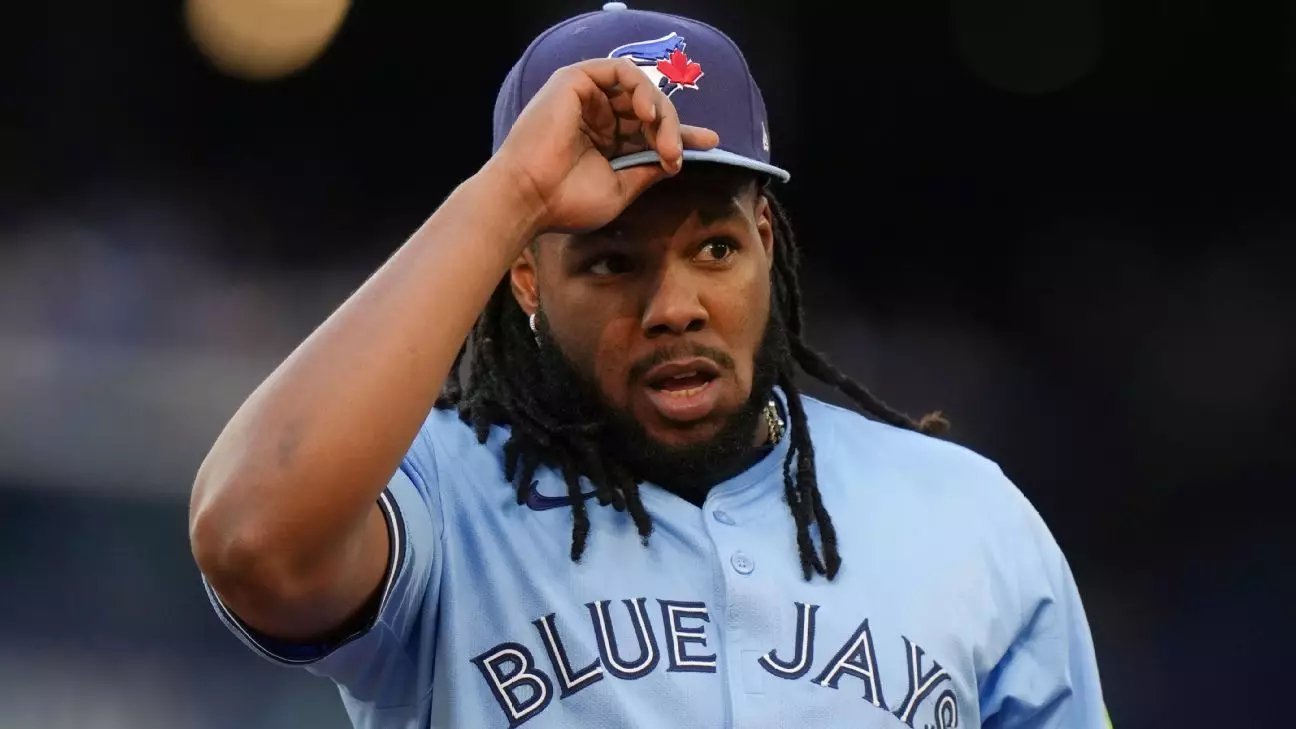The dynamic landscape of Major League Baseball (MLB) contracts and arbitration processes took center stage recently with the announcement of pivotal agreements concerning key players. Notably, Toronto Blue Jays‘ first baseman Vladimir Guerrero Jr. secured a lucrative one-year contract worth $28.5 million, effectively sidestepping an arbitration hearing. Meanwhile, Houston Astros‘ pitcher Framber Valdez also finalized a significant one-year deal valued at $18 million. These contract settlements illustrate the escalating financial stakes for players in today’s baseball economy and underscore the complexities surrounding arbitration negotiations.
Vladimir Guerrero Jr., the son of famed Hall of Famer Vladimir Guerrero, continues to make a name for himself in baseball, both through his remarkable performance on the field and financially in negotiations. His recent agreement, a substantial increase from his previous year’s salary of $19.9 million—the result of a landmark arbitration decision—reflects not only his on-field prowess but also the changing landscape of player compensation in MLB.
Historically, players like Guerrero have often found themselves in contentious negotiations with their teams, stemming from differing valuations of their contributions and potential. The increase in his salary emphasizes not only his past successes but also the expectations for future performance, signaling a trend where franchises are more willing to invest significantly in their marquee players. Guerrero’s previous arbitration battle underscored the broader narrative of high-stakes negotiations in MLB, demonstrating how teams and players must adapt to unprecedented financial demands.
Framber Valdez’s agreement with the Astros marks a critical moment for pitchers within MLB’s evolving financial ecosystem. Valdez secured an $18 million contract, highlighting that pitchers—traditionally viewed as less financially rewarded compared to their offensive counterparts—are increasingly becoming valuable assets. As the precedent set by Juan Soto’s record-setting arbitration deal and subsequent free agency suggests, the league is witnessing an upward trend in salary expectations across all roles.
The increasing aggressiveness in contracts for pitchers also signifies a shift in team strategies. Franchises are now inclined to invest heavily in their pitching staff to secure competitive advantages, illustrating a broader understanding of the critical role that starting and relief pitchers play throughout the season.
The negotiations and finalized contracts of players like Guerrero, Valdez, and others also have broader implications for the arbitration process as a whole. A report showed that over 155 players were eligible for arbitration, with many reaching agreements ahead of looming hearings. These negotiations are crucial as they symbolize a player’s worth and can significantly influence their market value during free agency.
The arbitration process has undergone scrutiny and change over the years, with teams’ performance in hearings reflecting shifts in bargaining power. Notably, the 9-6 win-loss record for players in arbitration hearings last winter, marking a rare victory for athletes compared to historical trends, points to potentially shifting dynamics in negotiations between teams and players.
As the 2023 MLB season approaches, the landscape of player contracts and the arbitration process is set to evolve even further. With a growing number of players successfully negotiating lucrative contracts without the need for lengthy arbitration hearings, one might anticipate future shifts in how teams approach these negotiations. The pressures of ensuring top talent remains both rewarded and motivated can drive franchises to expedite agreements outside traditional frameworks.
With the increasing integration of analytics and player performance data, teams will need to navigate player negotiations more strategically. Building solid relationships with key players will become imperative as teams aim to foster loyalty and reduce the contentious nature of contract negotiations. As we look ahead, it will be fascinating to see how these factors will shape not only individual careers but the future of MLB as a competitive league.
The recent contract agreements signify broader trends and challenges within MLB’s financial ecosystem, highlighting the complexities each player faces as they navigate their paths to secure their financial future within the sport.


Napsat komentář